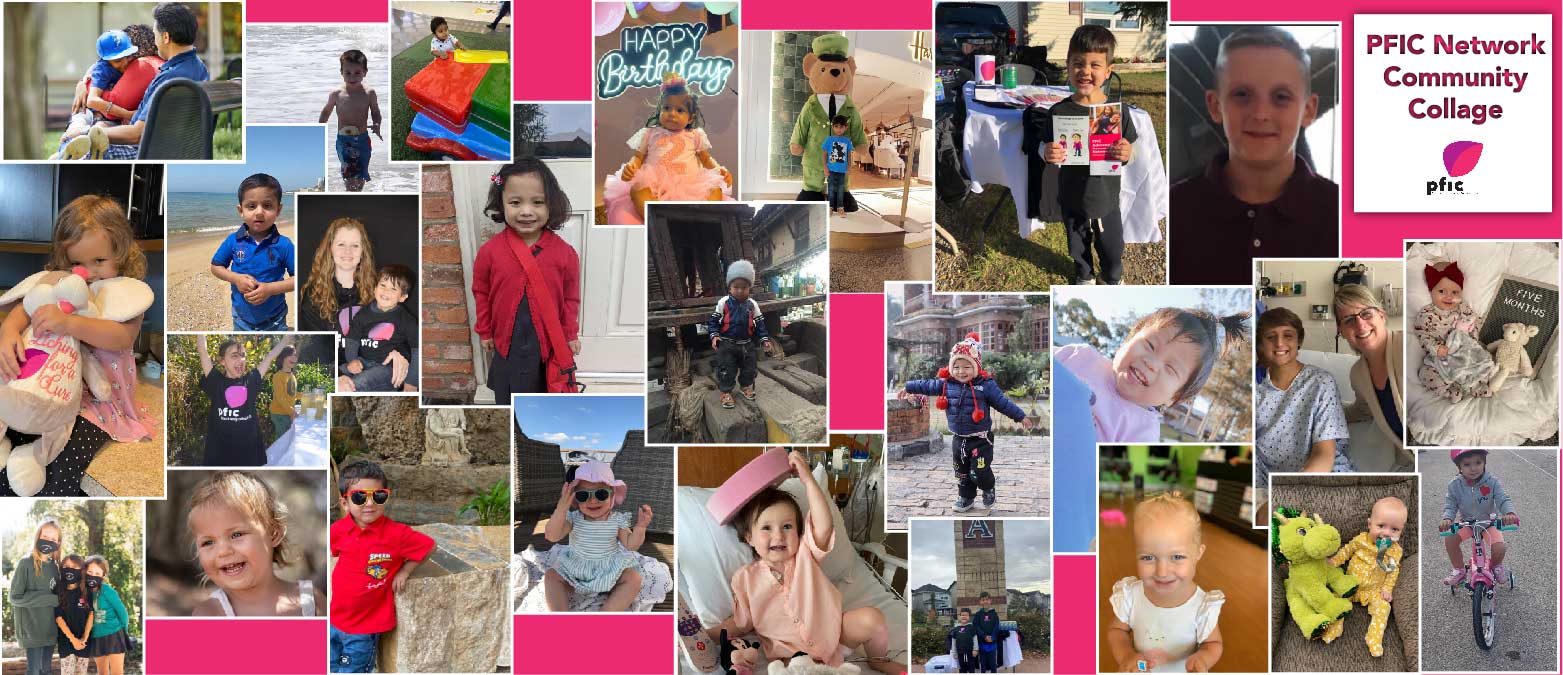6 Ways to Advocate for Yourself as a PFIC Patient or Parent – And Why It Matters
Written by: Lindsey Gram
Oct 27, 2023
“The disease is so rare, so complex, and so unique, that if people don’t ask questions and share concerns with their doctors, if they don’t participate in the process or if they let themselves feel intimidated, they will find themselves in a state of constant frustration.
Even with the best specialists in the world, managing the disease can feel like an educated guessing game, at best. I rely on my strong relationships with her doctors in order to breathe, even when they don’t have the answer.”
-Emily Ventura, PFIC Advocacy & Resource Network Executive Director.
To advocate means to support, speak up for, recommend, or defend on behalf of another person or yourself. As a child, teenager, or parent of a child with PFIC, learning to advocate gets you involved in your care.
It helps you feel seen, heard and understood. Advocacy leads to better outcomes, better healthcare, and a better future.
So, how do you go from feeling intimidated and frustrated to feeling empowered to speak up for your child or yourself? We’re here to help– and we’ve got your back. We’ll share our favorite advocacy tips and discuss how getting involved with the PFIC community will help you every step of the way. There are many different ways to advocate. Let’s get started!

1. Learn
Education is powerful. The more you know about PFIC, the more comfortable and confident you will feel speaking up for yourself and your care. Education is crucial in a rare disease like PFIC. Many people– including some healthcare providers, may have never heard of it.
Do you struggle to explain what you are going through to others? Are you overwhelmed by how much there is to learn? Or do you feel that PFIC terminology is a different language? Let’s fix that.
- Check out the Learn About PFIC section on our website. We go over the basics, the subtypes of PFIC, diagnosis, treatment, and more.
- We also offer Educational Webinars for a more interactive learning experience.
- If you are interested, take a deeper dive into the Science & Research aspects of PFIC.
We have a ton of resources for you here at PFIC.org. We want you to use them to become an informed and involved participant in your healthcare and in our network. Education is a building block to better treatment options, a stronger community, and a more vibrant future.
2. Ask Questions
If you have a question or don’t fully understand a treatment plan, procedure, medication, or anything else– ask away! Questions help you start meaningful conversations with your healthcare providers and the PFIC community. Questions help build trust and lay the groundwork for strong relationships. Ask questions at your doctors’ and specialists’ offices, in healthcare settings, and to others affected by PFIC.
- Our Facebook page is a great way to quickly and easily get in touch with those affected by PFIC worldwide.
- Contact us directly
- Join a PFIC support group
Get curious about your plan of care and about PFIC. Questions help identify and fix gaps in understanding. Questions help ensure we’re on the right path to finding solutions and solving problems. Questions lead to greater awareness and understanding– and they lead to advancements in research and treatment.
3. Get Organized
It can be HARD to keep everything straight. You frequently see different doctors and specialists and likely have multiple appointments, lab tests, and procedures. Many parents find making a binder with all their child’s healthcare information to be a game changer. Take this with you to appointments or if you are headed to the hospital. Get access to your child’s medical records and get started. Here’s what to include:
- List of current medications and their dosages
- List of any known allergies or adverse reactions to medications
- List of current medical supplies used
- Progress notes- organized by specialist
- Printouts of lab test results- organized by date
- Extra blank paper for questions and notes
Having your healthcare information in one place helps you feel prepared and at ease. Drawing a blank on what you and your doctor last talked about? What your last set of liver enzymes were? The name of that medication that you tried in the past that didn’t really work? There it is- all in one convenient place.
4. Speak Up!
You know yourself or your child best. And you are a huge asset to your healthcare team. Parents of children with rare diseases can often pick up on subtle changes before even the most experienced healthcare providers. This is because you are with them more than anyone- and you see their routines, normals, and intricacies every single day.
If something feels off to you- trust that intuition and speak up for your child or yourself. Don’t believe us? There’s even been a scientific study1 done on it. When patients and families speak up, challenges and struggles are identified. This guides treatment, healthcare, and research in more effective ways.
On this note, if you have a PFIC story that you want to tell– you can submit it to us here. Everyone has a unique and important story to share, and we can learn so much by listening to each other.
5. Know What To Say
Your healthcare providers are some of your biggest allies and resources during your journey with PFIC. Despite this, there can be times when you feel like you aren’t being listened to. Everyone is human, and miscommunication can happen despite the best intentions.
Here are a few key phrases that healthcare providers are trained to listen out for– from their colleagues and from their patients. Use them if you feel like you aren’t being heard.
- “It doesn’t seem like we are seeing eye to eye, and it’s really important to me that you fully understand my concerns.”
- “I want you to see what I am seeing.”
- “I’m worried.”
- “I’m uncomfortable.”
- “Stop.”
Jot down a few notes so you don’t forget anything in the moment. Be respectful and kind, yet firm. Body language helps, too. Sitting up straight, lowering your tone of voice, and speaking clearly with good eye contact will all help to get your point across and communicate your concern to your healthcare providers.
6. Get Involved
When we work together, we are unstoppable. Advocacy is incredible at a personal and individual level– but it can go even further! Getting involved with advocacy work that extends into the greater PFIC community positively impacts all of us.
Being an advocate doesn’t have to be a huge thing that takes a ton of time or effort– seemingly small, quick actions add up and lead to significant changes down the road. Advocacy can be as simple and easy as-
- Joining the PFIC Patient Registry
- Liking, sharing, or commenting on our Instagram or Facebook posts
- Sharing PFIC Fundraisers
Being a part of the greater PFIC community in person is a great way to advocate. We host a ton of productive, informative, and meaningful events– and they are super fun, too! Come meet other children, teens, and adults affected by PFIC. Share your hardships and triumphs, and make some new friends. You’d be surprised by what you can learn, and what you can teach others.
Community advocacy leads to more funding, more research, and improved treatment options. There are even more ways to get involved here. PFIC advocates are real-life superheroes!
Armed with knowledge, curiosity, and awareness- and backed by the support of our awesome rare disease community, you will become an advocate for yourself, for your child, and for PFIC in no time. When you advocate, you take the power back from this rare disease and change lives for the better. We’ll see you out there!
